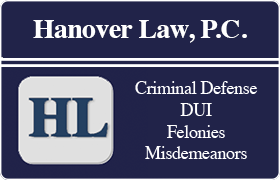Washington Criminal Lawyer, District of Columbia, page 3
Sponsored Law Firm
-
 x
x

Click For More Info:
-
Hanover Law, P.C.
888 16th St NW Suite 800 | Washington, DC 20006 » view mapCriminal Defense, DUI, Felony, Misdemeanor Receive a Response Within 24 Hours
If you need a lawyer, give us a call- your first phone consultation will be free. We want to ensure that everyone can afford a good attorney.
800-949-9630  Sean Hanover Washington, DC
Sean Hanover Washington, DCAttorney At Law - DC, 2011
David A. Clarke School of Law - 2008
 Testimonials
TestimonialsAt Hanover Law, we strive to be attentive and responsive to our clients.
Peter Wilson Chatfield
Government, Whistleblower, Criminal, Consumer Rights
Status: In Good Standing Licensed: 36 Years
Erika A. Kelton
Computer Law, Mental Health, Pharmaceutical Product, Criminal
Status: In Good Standing Licensed: 37 Years
Joel W. Anders
Alimony & Spousal Support, Adoption, Criminal, Animal Bite
Status: In Good Standing Licensed: 47 Years
Mark Robert Rosman
Federal Trial Practice, Criminal, Consumer Rights, Antitrust
Status: In Good Standing Licensed: 32 Years
Dennis Edward Boyle
White Collar Crime, Criminal, Civil Rights, Securities
Status: In Good Standing Licensed: 37 Years
Matthew G Kaiser
Professional Responsibility, Litigation, White Collar Crime, Criminal
Status: In Good Standing
Jonathan Errol Lopez
Litigation, Lawsuit & Dispute, White Collar Crime, Criminal
Status: In Good Standing Licensed: 24 Years
Abraham Clair Blitzer
Farms, Child Support, DUI-DWI, Criminal
Status: In Good Standing Licensed: 50 Years
Melissa Rachel Hooper
International Other, State Government, Criminal, Civil & Human Rights
Status: In Good Standing Licensed: 27 Years


 Sean Hanover Washington, DC
Sean Hanover Washington, DC Testimonials
Testimonials
